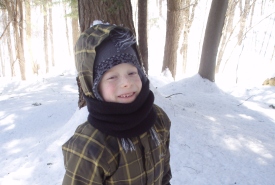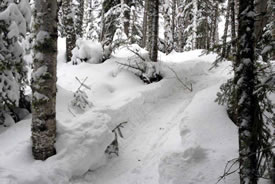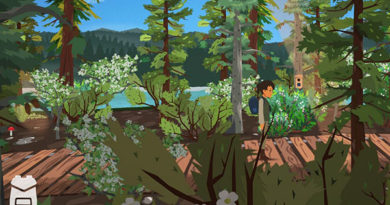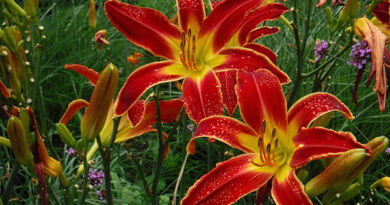NCC: Land Lines – Take them to feel the forest: Winter sensory activities for kids

Snowshoeing in Parc de la Gatineau, QC (Photo by DJ)
I‘ve walked in the woods all my life, but it wasn’t until I took young children with me that I noticed how fascinated they were with the variety of textures found in their surroundings. Kids can spend hours feeling, building, touching and creating with natural materials, such as leaves, twigs, stones and, of course, snow. I’ve seen how young children in particular have a process of discovery that creates a lasting connection to the outdoors. Here are winter sensory activities that can fuel your child’s fascination:
1. Take a mindfulness minute outdoors
Go on a nature walk that interests your child. Suggest something special about the place that can only be found if you both wait patiently with your eyes closed. Allow for a short moment of silence and tell them of a feeling you’re having, like the breeze on your face. Ask your child if they’re having the same feeling. What else can they feel? Talk about all the different sensations that make the place special.
2. Play a counting game
See how many different textures and materials you and your child can find around you. If you have more than one child, ask each one to find a different texture, like soft or hard. You can also feel different textures from the same substance, such as soft snow and hard ice. Whatever you choose, you can practice counting the different textures and discover new sensations at the same time.

Walking through a winter wonderland (Photo by Canadian Voyageurs)
3. Make a winter wonderland
Try a snowy alternative to “fairy houses” and suggest you build a town made of snow together. It can be for squirrels, elves or whatever else interests your child. Make roads, build houses and incorporate natural materials. How will you make the village comfortable for the squirrels? This is also an opportunity to learn or review the “leave only footprints, take only memories” principle, so use only fallen items.
4. Feed the birds
Fill a large bowl or hollow with snow and mix in foods that are suitable for birds, such as bird seed and cranberries. Add other natural materials, such as twigs, rocks, leaves and shells. Allow your child to dig, play and explore inside — the options are endless! If you live somewhere without enough snow, you can freeze the materials in ice instead and play while they melt. When finished, leave the food behind for animals.




